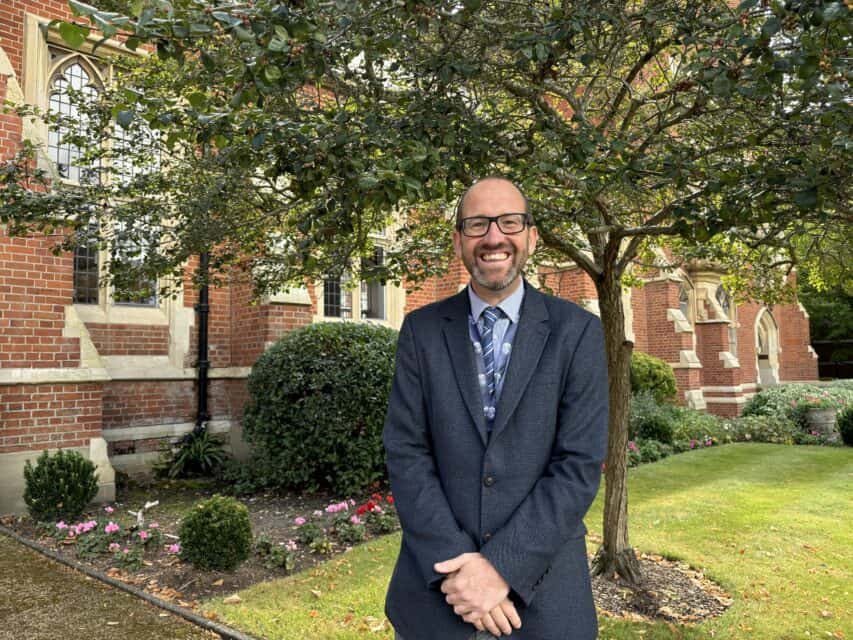ELS Educational Services offers English language training, university pathways and placement services at 69 centres worldwide. Its ELS certificate of completion is also recognised by over 650 institutions in the US, Canada, Australia, Malaysia, and now France. We catch up with President and CEO Mark Harris.
Сư�洫ý: What is ELS up to at the moment?
MH: As tertiary institutions throughout the European community have begun offering degree programmes in English medium, we see the opportunity to support them in the recruitment of students internationally as well as providing intensive English as a second language on campus to prepare students for academic success.
We’ve just opened our first ELS on-campus pathway in Europe at SKEMA Business School in Nice, and this is a reflection of our strategy to support English-medium tertiary education in any country where it may be taking place. Last year we opened an ELS centre on the campus of Universiti Putra Malaysia, in Kuala Lumpur. Malaysia, like France, is an increasingly important destination for international students.
“At the moment the two European countries of greatest interest are France and Germany”
Сư�洫ý:��So you plan to partner with more European institutions? Any in mind?
MH:��At the moment the two European countries of greatest interest are France and Germany. They’ve switched positions in terms of their global ranking as study destinations, Germany in fourth, France now in fifth place, but are still head and head in attracting both undergraduates and postgraduates. The Netherlands and Switzerland are also of interest.
Сư�洫ý:��English medium education in France is quite widely available but still technically restricted by law. Could it actually take off?
MH:��The politics of the English language as a language of instruction is a bit of a political hot potato in France. There’s a debate going on about the appropriateness of higher education being provided in English using public resources right now, although the government is pushing for it. But we’ll have to wait and see what comes out of it.
However, I only see demand increasing for English-medium education and pathways such as ours. France has long been one of the prime student destination countries because of the quality of its education, and SKEMA is an example with its very high ranking in The Financial Times’ international business school category. I see such quality as being a basis for demand.
Сư�洫ý:��What about the general unease in Europe over public-private partnerships in education. Could that get in the way of ELS’ continental expansion?
MH:��We would look forward to the opportunity at some point of engaging with public sector institutions in Europe and we think it will happen. In the USA we currently have as many pathway centres at public universities as we do private, and it’s really over the last decade that this has happened.
This is because an increasing number of public universities in the US, particularly four-year research institutions, are eager to attract more international students and to have them better prepared, so they are turning to private sector solutions. I feel that in time we will partner with more public institutions in Europe as well as in the US, Australia and other countries.��ELS’ expertise is in bringing qualified international students to universities, to the benefit of the university, its domestic and international students.
Сư�洫ý:��ELS offers pathways, general English and placement services. What percentage does each constitute in the business?
“The politics of the English language as a language of instruction is a bit of a political hot potato in France”
MH:��Our specialisation, and means of running the company, is English for academic pathways and so most of our income comes from tuition fees. On the other hand, the reason why many universities are partnering with us is because we also have an international recruitment network.
This begins with 40 different micro sites in local languages and our main site and publications in 20 languages. We also attend 450 student fairs in 28 countries each year and have a network of trained, and in many cases ELS-certified, counselling agencies in 93 countries.
Сư�洫ý:��What do schools get from your placement services? Wouldn’t it be cheaper for them to recruit themselves?[More>>]
MH:��I think a lot of universities simply don’t have the reach or the resources to provide the sorts of services agencies can. When students and their families are making an investment on €100,000 or more in a degree course abroad, students tend to want to seek some local professional advice—to speak to someone in their own language, in their own country who can really help with filling out application forms and preparing the required documents.
Сư�洫ý:��Do your counsellors place students only at ELS partner schools?
MH:��No, our counsellors in many cases are non-exclusive. So when we do our certification training for counsellors we tell them the student comes first and the school chosen should accord with the student’s qualifications, ambitions and finances. Many of our counsellors represent as many a 500 institutions, some of whom are our partners, some of whom are not.
Сư�洫ý:��What did you think of the recent NACAC decision not to ban schools from paying agents who place foreign students in the US?
MH:��I think it’s long overdue. There are so many universities who have decided unilaterally to compensate agents in the past. To give an example, before we set up at Middle Tennessee State University, the State of Tennessee did not allow universities to pay any commission on foreign students who went to the university.
Subsequent to our arrival on the campus six years ago, there was actually a motion in the state legislature to approve the payment of commission to overseas recruiters. Now all public institutions are empowered by the state to pay commission to recruiters. In New York State, certain state institutions have a state approved policy of paying overseas recruiters, too.
So I believe that if the US wants to compete for the best international students they simply have to get on the bandwagon and play catch-up in learning how to do it ethically with the correct vetting of partners. Part of what we do is make sure that our agents are ethical and treat students in an appropriate manner and they give good, informed advice.
Сư�洫ý:��ELS is spread across many territories. Which are the most important at the moment for you?��
“If the US wants to compete for the best international students they simply have to get on the bandwagon and play catch-up”
MH:��The two biggest contributors to international student mobility, and thus to our business, are China and India. The demand from China has been impaired somewhat by current economic circumstances, and equally that many returning students have not got the kind of jobs they were expecting. So there’s a little bit of a slow down there. Many of the best US universities are also saturated with Chinese students. But I think as more mid-tier ranked universities work to attract Chinese students this will ease.
We’ve recently opened up recruitment in India, not because students there need English necessarily, but because our university partners need Indian students. It is the only country in the world where we provide student counselling ourselves and we don’t charge for it. We have been sending students to many institutions with whom we have no direct relationship because they are qualified and have interest –including Ivy League schools.
Сư�洫ý:��Are you experiencing growth elsewhere?
MH:��We see growth throughout South East Asia. There’s a shortage of graduate education in those countries that will remain an issue for some years. Central Asia and the Middle East after the Arab Spring have seen growth too –��again people increasingly want their children to be educated abroad and often see the US as the destination of choice.
Korea meanwhile has been slowing down. We’re waiting to see what happens in Turkey and Brazil, where the recent social unrest may spur even greater demand for study abroad.
“We see growth throughout South East Asia, Central Asia and the Middle East after the Arab Spring”
Сư�洫ý:��The pathway market is getting quite crowded now with the likes of INTO moving into the USA. Is becoming more competitive?
MH:��My approach is not to look in the rear view mirror but drive as fast as I can! I don’t consider other institutions to be competitors; I don’t feel they have the position we do with regards to higher education. Their models are different—certainly they would be appealing to certain institutions.
INTO is extremely successful in the UK with the model they have; there are others who are equally successful in the UK and Australia. ELS is not present in the UK at all at this moment. With students needing an IELTS 6.0 to get a student visa, and the government trying to reduce the number of international students in the UK, we don’t see it as best time to open up there. But the rest of Europe is indeed important for us right now.



